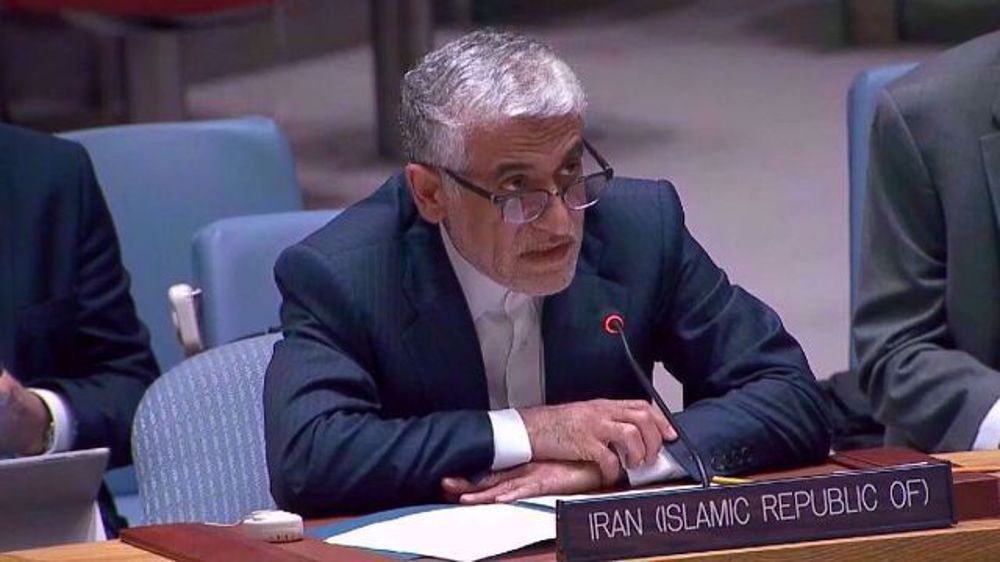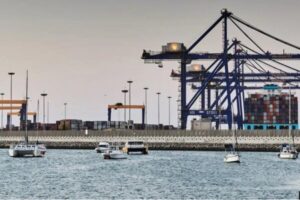Iran’s permanent ambassador to the United Nations rejected US “unfounded allegations” against Iran concerning Yemen’s pro-Palestine operations in the Red Sea, slamming it as a bid to divert attention from “root causes” of the situation in the key maritime waterway.
Amir Saeid Iravani said in a post on X, formerly Twitter, on Tuesday that any US “adventurism” in the Red Sea could “endanger regional peace.”
Iran “issues a stern warning against any US adventurism that could endanger regional peace,” the Islamic Republic’s mission to the UN said.
He warned that the allegations were aimed at diverting “international attention away from the root causes of the current situation in the Red Sea.”
The post also included two photos of a letter sent by Iravani, to the president of the UN Security Council (UNSC) on Monday.
In the letter, the Iranian envoy reaffirmed Tehran’s commitment to maritime security and freedom of navigation, and rejected “unfounded allegations” made by the US and Israel at a UNSC open briefing on the situation in the Red Sea held last Wednesday.
“The allegations are unsubstantiated and lack evidence. The Islamic Republic of Iran has always placed great importance on maritime security and freedom of navigation and reaffirms its unwavering commitment to upholding its international obligations and maintaining peace and security in the region,” the letter read.
That came as US deputy ambassador Christopher Lu urged the UNSC during the Wednesday meeting to take action against Yemen over its pro-Palestine operations that have targeted Israeli-linked ships in the Red Sea, and accused Iran of being “deeply involved in planning operations against commercial vessels in the Red Sea.”
Iravani dismissed the claims as “baseless accusations.”
The letter added that the recent incidents in the Red Sea came in response to the Israel’s US-backed “genocidal war” in the Gaza Strip and the occupying regime’s crimes against Palestinians in the West Bank.
It urged the UN Security Council “to uphold its responsibilities to address the causes of the current situation in the Red Sea” and take decisive measures to “compel” the Israeli regime to end its brutal war on Gaza.
Israel launched the war on Gaza on October 7 after the Palestinian resistance movement Hamas waged the surprise Operation Al-Aqsa Storm against the occupying entity in response to the Israeli regime’s decades-long campaign of bloodletting and devastation against Palestinians.
Since the start of the offensive, the Tel Aviv regime has killed at least 23,084 Palestinians, which is about one percent of the Gaza population, and injured more than 58,926 others.
Thousands more are also missing and presumed dead under the rubble in Gaza, which is under “complete siege” by Israel.
In solidarity with the Palestinians in the besieged Gaza Strip, the Yemeni armed forces have targeted ships in the Red Sea with owners linked to Israel or those going to and from ports in the occupied territories.
In November, they seized the Israel-leased cargo ship Galaxy Leader and turned it into a tourist attraction.
The US has formed a multinational military coalition against Yemeni forces in the Red Sea, through which 12 percent of global trade passes.
Mohammed Abdul-Salam, a spokesman for Yemen’s Ansarullah resistance movement, said that the US should realize that the militarization of the Red Sea will not prevent Yemen from supporting the Palestinian resistance in Gaza.




